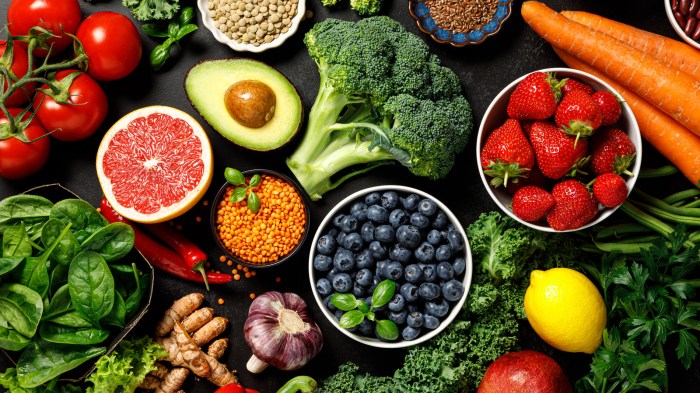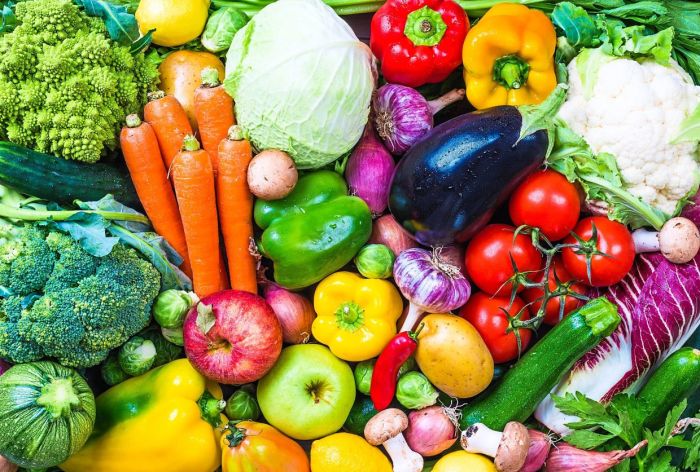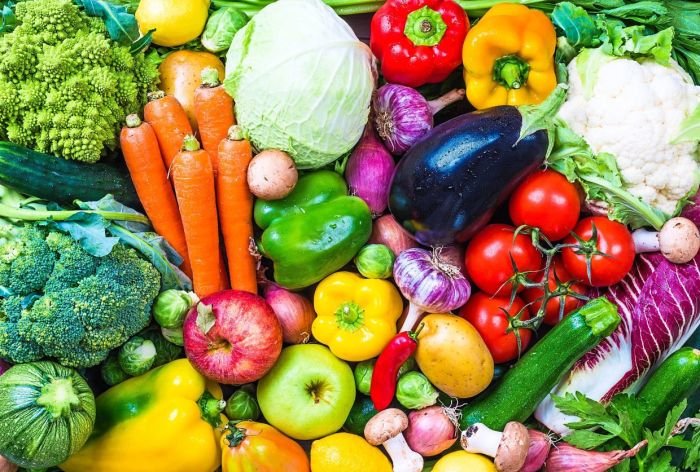What are the foods that can help you sleep? This isn’t just about grabbing a bedtime snack; it’s about understanding how specific foods can influence your sleep quality. From tryptophan-rich treats to magnesium-packed meals, we’ll explore the fascinating connection between nutrition and slumber. Discover which foods to embrace and which ones to avoid for a more restful night’s sleep.
This exploration delves into the science behind sleep-promoting foods. We’ll examine the crucial roles of various nutrients, including tryptophan, magnesium, vitamin B6, calcium, and potassium, in regulating sleep cycles. Furthermore, we’ll identify foods to avoid before bed and explore the sleep-inducing properties of certain herbal teas. Understanding the impact of complex carbohydrates, omega-3 fatty acids, and gut-friendly foods on sleep quality is also key.
Let’s uncover the secrets to a deeper, more restorative sleep.
Foods High in Tryptophan
Unlocking the secrets to a better night’s sleep often involves understanding the role of specific nutrients. Tryptophan, an essential amino acid, plays a crucial part in the production of serotonin and melatonin, vital for regulating mood and sleep cycles. Incorporating tryptophan-rich foods into your diet can be a natural and effective way to promote restful sleep.
Tryptophan-Rich Foods
A balanced diet rich in tryptophan can contribute significantly to your sleep quality. Different food groups offer various levels of this essential amino acid.
- Dairy Products: Dairy products like milk, cheese, and yogurt are excellent sources of tryptophan. They offer a readily available source of this amino acid, which can be easily absorbed by the body. Milk, in particular, is often recommended as a bedtime snack due to its calming effect.
- Meat and Poultry: Certain meats and poultry also contain tryptophan. Turkey, in particular, is often highlighted for its tryptophan content, although other meats like chicken and beef contribute as well. Consuming these sources alongside complex carbohydrates can enhance tryptophan absorption.
- Legumes: Legumes such as beans, lentils, and chickpeas are valuable sources of tryptophan. Their fiber content adds another layer of health benefits, aiding digestion and contributing to a more balanced diet. These are particularly beneficial for vegetarian and vegan diets.
- Vegetables: Certain vegetables also contain tryptophan, albeit in smaller amounts compared to other food groups. These include spinach, bananas, and avocado, among others. These can be included as part of a wider diet rich in nutrients.
- Nuts and Seeds: Nuts and seeds like pumpkin seeds, sunflower seeds, and almonds provide a good source of tryptophan. They also offer healthy fats and other essential nutrients, making them a versatile addition to a balanced diet.
Tryptophan’s Role in Sleep
Tryptophan is a precursor to serotonin and melatonin, two crucial neurotransmitters that regulate sleep. Serotonin is a mood regulator, influencing feelings of well-being. Melatonin is the primary sleep hormone, controlling the sleep-wake cycle.
Conversion of Tryptophan to Serotonin and Melatonin
The body converts tryptophan into serotonin through a complex biochemical process. Serotonin is then further converted into melatonin, which signals the body to prepare for sleep. This conversion process is influenced by various factors, including the presence of other amino acids and the body’s overall metabolic state.
Serotonin, a neurotransmitter crucial for mood regulation, is synthesized from tryptophan. Melatonin, a key sleep hormone, is derived from serotonin.
Tryptophan Content Comparison
The following table illustrates the approximate tryptophan content of different food groups. This table is a general guide and actual values may vary based on specific food types and preparation methods.
| Food Group | Example Food | Approximate Tryptophan Content (mg/100g) |
|---|---|---|
| Dairy | Milk | 20-50 |
| Meat/Poultry | Turkey | 20-50 |
| Legumes | Lentils | 10-20 |
| Vegetables | Spinach | 10-20 |
| Nuts/Seeds | Almonds | 10-20 |
Foods Containing Magnesium
Magnesium is a crucial mineral for numerous bodily functions, including muscle and nerve function, blood sugar regulation, and blood pressure control. Its vital role in sleep regulation makes it an important element to consider in promoting healthy sleep patterns. A diet rich in magnesium-containing foods can significantly contribute to better sleep quality and overall well-being.Magnesium plays a vital role in the production of melatonin, a hormone that regulates sleep-wake cycles.
It also helps relax muscles, reducing the tension that can interfere with sleep. Adequate magnesium levels are essential for the proper functioning of the nervous system, promoting a sense of calm and relaxation conducive to falling asleep and staying asleep.
Magnesium-Rich Food Sources
A wide variety of foods naturally contain magnesium. These foods are excellent additions to a healthy diet, contributing significantly to your daily magnesium intake.
- Leafy Green Vegetables: Spinach, kale, and collard greens are excellent sources of magnesium, alongside vitamins and minerals beneficial for overall health. They offer a substantial amount of magnesium per serving, while also providing other nutrients essential for bodily functions.
- Legumes: Beans, lentils, and chickpeas are not only rich in magnesium but also offer protein and fiber. They are a great option for a filling and nutritious meal, promoting a sense of fullness and supporting sleep quality by aiding in digestion.
- Nuts and Seeds: Almonds, cashews, pumpkin seeds, and sunflower seeds are excellent sources of magnesium and healthy fats. These nutrient-dense snacks can be incorporated into your daily routine for a magnesium boost.
- Whole Grains: Brown rice, quinoa, and oats contain significant amounts of magnesium. These grains provide sustained energy, supporting overall well-being and potentially aiding in better sleep.
- Dark Chocolate: Dark chocolate, especially with a high percentage of cocoa, contains magnesium. A small amount of dark chocolate can be a delightful treat, adding a touch of indulgence while contributing to magnesium intake.
Role of Magnesium in Sleep Regulation
Magnesium plays a crucial role in sleep regulation by promoting relaxation and reducing muscle tension. Its influence on the production of melatonin, a sleep-regulating hormone, is also significant.
Magnesium is essential for maintaining healthy sleep-wake cycles and contributes to overall well-being.
Symptoms of Magnesium Deficiency and Sleep Impact
Magnesium deficiency can lead to a range of symptoms that can significantly affect sleep. These include muscle cramps, fatigue, and irritability, all of which can disrupt sleep patterns.
- Difficulty Falling Asleep: Magnesium deficiency can interfere with the relaxation process, making it difficult to fall asleep. This can be attributed to muscle tension and irritability.
- Restless Legs Syndrome: Restless legs syndrome, characterized by uncomfortable sensations in the legs, can be aggravated by magnesium deficiency. These sensations can disrupt sleep patterns, making it challenging to maintain sleep.
- Poor Sleep Quality: A magnesium deficiency can result in poor sleep quality, marked by frequent awakenings and difficulty staying asleep. This is likely due to the role of magnesium in muscle relaxation and melatonin production.
Magnesium Levels in Different Food Types
The following table illustrates the approximate magnesium content in various food groups. This information provides a general guideline for understanding the relative magnesium levels in different food choices.
| Food Type | Approximate Magnesium Content (mg per 100g) |
|---|---|
| Leafy Green Vegetables | 70-150 |
| Legumes | 50-100 |
| Nuts and Seeds | 100-300 |
| Whole Grains | 30-80 |
| Dark Chocolate | 40-80 |
Foods Rich in Vitamin B6
Vitamin B6, also known as pyridoxine, is a vital water-soluble vitamin crucial for numerous bodily functions, including the production of neurotransmitters that regulate mood and sleep cycles. Its role in converting tryptophan into serotonin and melatonin makes it a key player in promoting restful sleep. Understanding which foods provide ample vitamin B6 can significantly improve your sleep hygiene.
Excellent Sources of Vitamin B6
A variety of foods, from plant-based options to animal products, contribute to your daily vitamin B6 intake. The bioavailability of vitamin B6 varies across different food sources. For instance, cooking methods can impact the vitamin’s retention. Choosing a variety of these sources ensures a balanced intake.
Vitamin B6 and Neurotransmitter Production
Vitamin B6 plays a critical role in the synthesis of essential neurotransmitters, including serotonin and dopamine. These neurochemicals are directly linked to regulating sleep-wake cycles and overall mood. Adequate vitamin B6 levels are essential for converting tryptophan, an amino acid, into serotonin and subsequently melatonin, a hormone that promotes sleep. This conversion process is a vital step in ensuring a smooth transition into restful sleep.
Comparison of Vitamin B6 Content Across Food Groups
Fruits and vegetables often contribute a significant amount of vitamin B6, although the content varies considerably between different types. Lean meats and fish are generally good sources, offering a different profile of nutrients alongside the vitamin. Fortified cereals can also provide a boost, especially for those with specific dietary needs. The amount of vitamin B6 present in a food depends on various factors, including the growing conditions, processing methods, and preparation techniques.
Vitamin B6-Rich Foods and Their Approximate Content
| Food | Approximate Vitamin B6 Content (mg per 100g) |
|---|---|
| Fortified cereals | 0.4-1.0 |
| Bananas | 0.4-0.6 |
| Sweet potatoes | 0.4-0.7 |
| Tuna | 0.5-0.8 |
| Chicken breast | 0.6-0.9 |
| Spinach | 0.4-0.6 |
| Potatoes | 0.5-0.7 |
| Salmon | 0.6-0.9 |
Note: Values are approximate and may vary depending on preparation and growing conditions.
Foods with Calcium and Potassium
Nourishing your body with the right nutrients can significantly impact your sleep quality. Calcium and potassium, two essential minerals, play a crucial role in regulating various bodily functions, including muscle contractions and nerve impulses, which can indirectly affect sleep patterns. Consuming foods rich in these minerals can contribute to a more restful night’s sleep.Calcium and potassium are vital electrolytes that contribute to the maintenance of a healthy sleep cycle.
They support muscle relaxation, regulate blood pressure, and ensure proper nerve function, all of which are essential for a calm and restful sleep. A balanced intake of calcium and potassium can help to reduce nighttime muscle cramps and promote a smoother transition into deep sleep.
Foods Rich in Calcium, What are the foods that can help you sleep
A diet rich in calcium-containing foods is essential for maintaining healthy bones and teeth. Furthermore, calcium plays a role in regulating muscle contractions, including those involved in maintaining sleep.
- Dairy products like milk, yogurt, and cheese are excellent sources of calcium. These foods also contain other nutrients that contribute to overall health, making them a complete nutritional package.
- Leafy green vegetables such as kale, collard greens, and bok choy are good sources of calcium. These are also packed with other vitamins and minerals, contributing to a well-rounded diet.
- Fortified foods, including some plant-based milks and cereals, are often fortified with calcium to provide an additional source of this essential mineral.
- Calcium-set tofu and certain types of fish, such as sardines and canned salmon with bones, are also good sources of calcium.
Foods Rich in Potassium
Potassium is crucial for maintaining fluid balance and regulating blood pressure. It also supports muscle function, which is important for relaxation before sleep.
- Bananas are a well-known potassium-rich fruit. They offer a convenient and tasty way to increase your potassium intake.
- Potatoes, sweet potatoes, and other root vegetables are excellent sources of potassium. They provide a substantial amount of potassium along with other beneficial nutrients.
- Beans and lentils are excellent sources of potassium. These legumes are a good choice for vegetarians and vegans looking to incorporate more potassium into their diet.
- Spinach and other leafy greens are also good sources of potassium. They provide a range of nutrients along with the potassium.
- Yogurt and milk, in addition to their calcium content, are also good sources of potassium.
Calcium and Potassium Content Comparison
The following table provides a general comparison of calcium and potassium content across different food categories. Note that specific values can vary depending on preparation methods and the exact food type.
| Food Category | Examples | Calcium (mg) | Potassium (mg) |
|---|---|---|---|
| Dairy Products | Milk, Yogurt, Cheese | 100-300+ | 100-400+ |
| Leafy Greens | Kale, Spinach, Collard Greens | 50-150 | 200-500+ |
| Fruits | Bananas, Oranges | 5-20 | 200-500+ |
| Legumes | Beans, Lentils | 20-100 | 200-800+ |
| Root Vegetables | Potatoes, Sweet Potatoes | 5-20 | 200-600+ |
Potential Benefits of Calcium and Potassium on Sleep Quality
Adequate intake of calcium and potassium can contribute to a better sleep experience. These minerals play a vital role in muscle relaxation and nerve function, which are crucial for a peaceful and restful night’s sleep.
Foods to Avoid Before Bed
Getting a good night’s sleep is crucial for overall health and well-being. Many factors contribute to a restful sleep, and what we eat and drink in the hours leading up to bedtime plays a significant role. Choosing the right foods can support a peaceful slumber, while others can disrupt our sleep patterns. Understanding which foods to avoid before bed can significantly improve sleep quality.
Foods High in Caffeine
Caffeine is a stimulant that can interfere with the natural sleep-wake cycle. Its effects can linger for several hours, making it difficult to fall asleep or stay asleep. The half-life of caffeine can vary depending on individual factors, such as metabolism and overall health. This means that even a moderate intake of caffeinated beverages or foods close to bedtime can lead to sleep disturbances.
- Coffee:
- Tea (especially black and green):
- Energy drinks:
- Chocolate:
Coffee is a well-known source of caffeine, and its stimulating effect can persist for several hours. Consuming coffee close to bedtime can make it challenging to fall asleep or experience restful sleep.
While some teas contain calming ingredients, many types, particularly black and green tea, contain caffeine, which can disrupt sleep.
Energy drinks are often loaded with high doses of caffeine, and the stimulating effect can significantly impact sleep quality.
Dark chocolate and other types of chocolate can contain caffeine, though the amount varies. Even small amounts can have an effect on sleep, especially if consumed late in the day.
Foods High in Sugar
Sugary foods can cause a surge in blood sugar, followed by a crash. This fluctuation in blood sugar levels can disrupt sleep, leading to awakenings and difficulty falling back asleep. Consuming a lot of sugar close to bedtime can result in feelings of anxiety or restlessness, further hindering sleep.
- Candy:
- Cakes and pastries:
- Processed snacks:
Candy and other sugary treats can cause a spike in blood sugar levels, followed by a dip, which can disrupt sleep patterns.
While chamomile tea and warm milk are classic sleep aids, dietary choices play a significant role in how well you sleep. Figuring out what foods work best for your body is part of navigating the complexities of life, just as navigating life’s chaos can build character. Learning to manage stress and sleep better is a journey of self-discovery.
Sometimes, simply understanding how your body responds to different foods, like incorporating magnesium-rich foods, can help you sleep better. Check out this insightful article on how the chaos your life builds character: how the chaos your life builds character. Ultimately, understanding your body’s needs through careful experimentation with your diet can lead to a more peaceful sleep routine.
Many cakes and pastries are high in sugar and can lead to similar blood sugar fluctuations.
Processed snacks often contain high levels of added sugar, which can negatively impact sleep quality.
Foods High in Fat
Consuming large meals or foods high in fat before bed can lead to digestive discomfort and indigestion. These issues can make it difficult to fall asleep and stay asleep. The body has to work harder to digest heavy meals, which can interfere with sleep.
- Fried foods:
- Fatty meats:
- High-fat dairy products:
Fried foods are often high in fat and can cause digestive issues.
Consuming large portions of fatty meats before bed can lead to discomfort.
Looking for ways to improve your sleep? Certain foods can really help! Try incorporating foods rich in tryptophan, like turkey or bananas, into your diet. Also, calming teas and warm milk are great options. However, if you find yourself constantly criticizing your partner, it might be worth checking out this helpful article on relationship advice: you are always criticizing your partner read this.
Addressing those relationship issues could lead to a more relaxed and peaceful environment, which in turn will help you sleep better. Ultimately, focusing on a healthy diet and a positive relationship will likely contribute to better sleep quality.
Some high-fat dairy products can also cause digestive issues.
Foods with High Acid Content
Foods high in acid can cause heartburn and indigestion. This discomfort can interfere with sleep, leading to restlessness and difficulty falling asleep. The acidity of these foods can irritate the digestive system and cause discomfort, which makes it difficult to relax and fall asleep.
- Citrus fruits:
- Tomatoes:
- Spicy foods:
Citrus fruits are high in acid and can cause heartburn.
Tomatoes are high in acid and can also lead to indigestion.
Spicy foods can cause heartburn and digestive issues.
Foods to Avoid Before Bed – Summary Table
| Food Category | Specific Foods | Reason for Avoidance |
|---|---|---|
| High in Caffeine | Coffee, Tea, Energy Drinks, Chocolate | Stimulates the nervous system, interferes with sleep-wake cycle |
| High in Sugar | Candy, Cakes, Pastries, Processed Snacks | Blood sugar fluctuations disrupt sleep, cause anxiety |
| High in Fat | Fried Foods, Fatty Meats, High-fat Dairy | Digestive discomfort, indigestion interfere with sleep |
| High in Acid | Citrus Fruits, Tomatoes, Spicy Foods | Heartburn, indigestion, discomfort interfere with sleep |
Sleep-Promoting Herbal Teas
Herbal teas have long been used as a natural way to unwind and prepare for a good night’s sleep. Beyond simply offering a comforting beverage, many herbal infusions contain compounds that can directly influence the body’s natural sleep-wake cycle. Understanding these ingredients and their mechanisms can help you choose the right tea to support your sleep routine.Beyond simply offering a soothing drink, herbal teas can offer a gentle nudge towards a more restful sleep.
Many of these teas contain compounds that naturally promote relaxation and calm the nervous system, making them a valuable addition to a sleep-friendly lifestyle. However, it’s essential to approach herbal teas with awareness, as some may have potential interactions with medications or pre-existing health conditions.
Types of Sleep-Promoting Herbal Teas
Herbal teas can offer a soothing and natural approach to promoting relaxation and sleep. They work by targeting various physiological processes associated with sleep.
Looking for foods that promote better sleep? A balanced diet is key, and incorporating calming foods like chamomile tea or bananas can really help. But, sometimes, focusing on your sleep routine and how you build social connections can also make a big difference. For example, practicing mindful activities like yoga or spending quality time with loved ones can significantly improve your sleep quality.
Learning how to quietly build social life can be a fantastic way to improve your well-being and, ultimately, get a better night’s sleep. How quietly build social life is a great resource for that. So, remember that a holistic approach to sleep health is important, encompassing everything from diet to social connections.
- Chamomile Tea: Known for its calming properties, chamomile tea contains compounds like apigenin, which binds to specific receptors in the brain, promoting relaxation and reducing anxiety. Studies suggest chamomile can help improve sleep quality and reduce sleep latency (the time it takes to fall asleep).
- Lavender Tea: Lavender’s calming aroma and specific compounds like linalool can reduce stress hormones and promote relaxation. This can lead to a more tranquil state, making it easier to fall asleep and maintain sleep throughout the night. The aroma alone can be a potent sleep aid.
- Passionflower Tea: Passionflower, known for its sedative properties, contains compounds that interact with neurotransmitters in the brain. This interaction can help calm the nervous system, reducing anxiety and promoting a sense of tranquility, potentially leading to improved sleep quality.
- Valerian Root Tea: Valerian root has a long history of use as a sleep aid. Its active compounds interact with the neurotransmitter GABA, leading to a calming effect and reduced feelings of stress. This can aid in falling asleep and staying asleep throughout the night.
Mechanisms of Action
These teas’ sleep-promoting effects stem from the interaction of their active ingredients with the body’s natural sleep-wake cycle.
- Reducing Stress Hormones: Many herbal teas help lower cortisol levels, the stress hormone. This reduction promotes a sense of calm and relaxation, essential for initiating and maintaining sleep.
- Promoting Relaxation: Compounds in these teas interact with the central nervous system, slowing down brain activity and reducing feelings of anxiety or agitation. This promotes a more relaxed state conducive to sleep.
- Enhancing GABA Activity: Valerian root and other teas influence GABA, a neurotransmitter associated with relaxation. Increasing GABA activity can lead to a more tranquil and sleep-promoting state.
Potential Benefits and Drawbacks
Herbal teas can be a beneficial addition to a sleep routine, but potential drawbacks exist.
- Potential Benefits: Herbal teas offer a natural way to promote relaxation and sleep. They can be particularly helpful for individuals experiencing mild sleep disturbances or those seeking a gentle approach to improving their sleep quality. They can be a complementary sleep aid.
- Potential Drawbacks: While generally safe, some herbal teas may interact with medications or have contraindications for certain health conditions. Always consult a healthcare professional before incorporating new herbal teas into your routine, especially if you are pregnant, breastfeeding, or have underlying health conditions.
Herbal Tea Comparison Table
This table summarizes the active ingredients and purported sleep effects of various herbal teas.
| Herbal Tea | Active Ingredients | Purported Effects on Sleep |
|---|---|---|
| Chamomile | Apigenin | Relaxation, reduced anxiety, improved sleep quality |
| Lavender | Linalool | Stress reduction, relaxation, improved sleep initiation |
| Passionflower | Various compounds | Calming effect, reduced anxiety, improved sleep quality |
| Valerian Root | Valerenic acid, valepotriates | Calming effect, reduced stress, improved sleep initiation and maintenance |
Foods with Complex Carbohydrates

A healthy diet plays a crucial role in promoting restful sleep. Complex carbohydrates, in particular, offer a sustained release of energy, which can help regulate blood sugar levels and support a more consistent sleep cycle. Consuming these foods in the evening can provide a steady energy source without the disruptive peaks and valleys that simple carbohydrates can cause.Complex carbohydrates are essential for maintaining stable energy levels throughout the night.
Unlike simple carbohydrates, which are quickly digested and absorbed, complex carbohydrates are broken down more slowly, releasing glucose into the bloodstream gradually. This sustained release helps prevent blood sugar fluctuations, which can disrupt sleep patterns and leave you feeling sluggish or irritable in the morning.
Complex Carbohydrate Food Sources
A balanced diet rich in complex carbohydrates provides a steady source of energy, crucial for maintaining stable blood sugar levels. This helps prevent energy crashes and promotes better sleep quality. Examples of these foods include:
- Whole Grains: Foods like brown rice, quinoa, whole wheat bread, and oatmeal are excellent sources of complex carbohydrates. These grains are packed with fiber, which aids in digestion and promotes satiety, helping to regulate blood sugar levels.
- Legumes: Beans, lentils, and chickpeas are high in complex carbohydrates and fiber. They provide a sustained release of energy and are excellent additions to dinners and salads.
- Starchy Vegetables: Sweet potatoes, corn, and peas are rich in complex carbohydrates and offer essential vitamins and minerals. They are a healthy and delicious alternative to refined grains.
Sustained Energy and Sleep Cycles
The steady release of glucose from complex carbohydrates into the bloodstream contributes to sustained energy levels throughout the night. This prevents the energy dips and subsequent awakenings that can disrupt sleep. A consistent energy supply helps maintain a stable metabolic rate and supports healthy sleep cycles.
The gradual absorption of glucose also helps regulate blood sugar levels, preventing those post-meal energy crashes that often precede sleep difficulties. This is a significant benefit for individuals looking to improve their sleep hygiene.
Glycemic Index Comparison
The glycemic index (GI) measures how quickly a carbohydrate-rich food raises blood sugar levels. Foods with a lower GI are digested more slowly, leading to a more sustained release of energy.
| Food | Glycemic Index (GI) |
|---|---|
| White Bread | 70 |
| Brown Rice | 55 |
| Sweet Potatoes | 60 |
| Oatmeal | 50 |
| Lentils | 35 |
Note: GI values can vary based on preparation methods.
Foods with lower GI values (like lentils and oatmeal) are often better choices for maintaining stable blood sugar and promoting restful sleep.
Foods High in Omega-3 Fatty Acids
Omega-3 fatty acids are essential fats that play a crucial role in maintaining overall health, including brain function and sleep quality. These beneficial fats are not produced by the body, so they must be obtained through diet. Incorporating foods rich in omega-3s into your daily meals can contribute to a more restful night’s sleep and improved cognitive function.
Omega-3-Rich Foods
A variety of foods are excellent sources of omega-3 fatty acids. These include fatty fish, plant-based sources, and certain nuts and seeds. Understanding the different types of omega-3s and their respective food sources can help you create a balanced diet.
Types of Omega-3 Fatty Acids
The two main types of omega-3 fatty acids relevant to human health are EPA (eicosapentaenoic acid) and DHA (docosahexaenoic acid), primarily found in fatty fish. ALA (alpha-linolenic acid), found in plant-based sources, is another omega-3 type that the body can convert to EPA and DHA, although the conversion rate is often low.
Impact on Brain Health and Sleep
Omega-3 fatty acids are crucial components of brain cell membranes. They support the proper functioning of neurotransmitters, which are essential for regulating sleep-wake cycles. Adequate intake of omega-3s can lead to improved sleep quality and reduced instances of insomnia or other sleep disturbances. Studies have shown a positive correlation between omega-3 consumption and enhanced cognitive function.
Impact on Reducing Inflammation
Omega-3 fatty acids possess anti-inflammatory properties. They can help reduce chronic inflammation in the body, which has been linked to various health issues, including sleep disorders. Lowering inflammation may contribute to improved sleep patterns and overall well-being.
Omega-3-Rich Food List
| Food | Approximate Omega-3 Content (per serving) |
|---|---|
| Salmon (wild-caught) | ~2-3 grams |
| Tuna (albacore) | ~1-2 grams |
| Herring | ~1-2 grams |
| Mackerel | ~1-2 grams |
| Sardines | ~1-2 grams |
| Chia Seeds | ~5-6 grams per 2 tablespoons |
| Flax Seeds | ~2-3 grams per 2 tablespoons |
| Walnuts | ~2-3 grams per 1/4 cup |
Note: Serving sizes and specific omega-3 content can vary based on preparation methods and the specific type of fish or plant-based source. Consult with a nutritionist or healthcare professional for personalized recommendations.
Foods that Promote Healthy Gut Bacteria: What Are The Foods That Can Help You Sleep
A healthy gut microbiome is crucial for overall well-being, impacting everything from digestion to immunity and even mood. A significant correlation exists between the balance of bacteria in your gut and your sleep quality. A harmonious gut ecosystem plays a vital role in producing neurochemicals, influencing sleep cycles, and reducing inflammation, all contributing to a more restful night’s sleep.
Understanding which foods nurture this beneficial bacteria is key to improving sleep.
Foods Supporting a Healthy Gut Microbiome
A balanced diet rich in fiber and prebiotics is essential for a thriving gut microbiome. These foods act as food for the beneficial bacteria, encouraging their growth and helping them outcompete less desirable bacteria. A diverse range of plant-based foods is key to supporting this balance.
- Fermented Foods: These foods, such as yogurt, kefir, sauerkraut, and kimchi, contain live and active cultures of beneficial bacteria. These bacteria help to repopulate and replenish the gut microbiome, contributing to better digestion and overall gut health. Regular consumption of fermented foods can lead to improved gut health and, consequently, potentially improved sleep quality.
- Fruits and Vegetables: Fruits and vegetables are rich in fiber, a crucial prebiotic for gut bacteria. Different fruits and vegetables offer various types of fiber, promoting the diversity of gut bacteria. A wide variety of colorful fruits and vegetables ensures a diverse diet, contributing to a more balanced and robust gut microbiome.
- Legumes: Beans, lentils, and peas are excellent sources of fiber, particularly soluble fiber, which promotes the growth of beneficial gut bacteria. Their high fiber content aids digestion and keeps the gut healthy, leading to potential improvements in sleep quality.
- Whole Grains: Whole grains, like brown rice, quinoa, and oats, contain various types of fiber that feed beneficial bacteria. They provide sustained energy and are a crucial part of a balanced diet, helping to create a thriving gut microbiome, potentially impacting sleep positively.
The Connection Between Gut Health and Sleep Quality
The gut-brain axis is a bidirectional communication system connecting the gut and the brain. The gut microbiome produces neurochemicals, including serotonin and melatonin, which are vital for regulating mood and sleep cycles. An imbalance in the gut microbiome can disrupt this communication, leading to sleep disturbances.
How a Balanced Gut Microbiome Improves Sleep
A balanced gut microbiome helps maintain a healthy gut environment. This includes reducing inflammation and promoting the production of neurochemicals crucial for sleep regulation. A diverse range of beneficial bacteria in the gut helps to produce these vital neurochemicals, contributing to improved sleep quality. This positive feedback loop between a healthy gut and a better night’s sleep demonstrates the significant impact of gut health on overall well-being.
Foods Supporting Gut Health – Summary Table
| Food | Effect on Gut Health |
|---|---|
| Fermented Foods (Yogurt, Kefir) | Introduce beneficial bacteria, improve digestion |
| Fruits and Vegetables | Rich in fiber, diverse prebiotics for beneficial bacteria |
| Legumes (Beans, Lentils) | High in fiber, especially soluble fiber, supports beneficial bacteria growth |
| Whole Grains (Brown Rice, Oats) | Contain various fiber types, feeding beneficial bacteria |
Final Wrap-Up

In conclusion, the foods we eat can significantly impact our sleep. By understanding the interplay between nutrition and sleep, we can make informed choices that promote a healthy sleep cycle. From optimizing tryptophan intake to avoiding sugary snacks, this guide offers practical insights to enhance your sleep quality. Remember, consistency is key. Incorporating these sleep-promoting foods into your diet can lead to more restful nights and improved overall well-being.
So, next time you reach for a snack, consider how it might affect your sleep. Sweet dreams!











